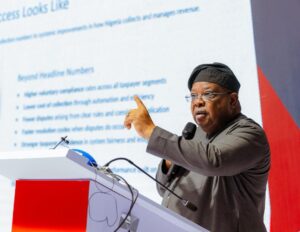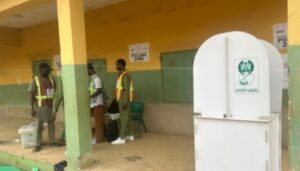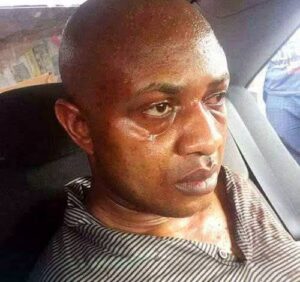
President Tinubu
The Minister of Budget and Economic Planning, Sen. Atiku Bagudu, has said that the Renewed Hope Agenda was working for the country’s economy.
Mr Bagudu said this in Abuja on Wednesday at the National Economic Dialogue 2024, organised by the Nigerian Economic Summit Group, NESG, with the theme: Nigeria’s Economic Future: 25 years of democracy and beyond.
According to him, Nigeria has not achieved a lot in 25 years, but our population has increased, and we are not where we used to be.
“But I just want to assure everyone that we have a strategy and it is working.
“We are under no illusion that it will involve choices that are tough. That is why at every turn, we are looking for resources that we believe can compensate for those tough choices,” he said.
Mr Bagudu said that President Bola Tinubu had created more ministries to help the economy grow.
“Whatever we are doing, we have taken the message that we need to do more.
“We need to do better, and we need to do it in a hurry. I believe the dialogue here will help us,” he said.
The Minister of Finance and Coordinating Minister of the Economy, Wale Edun, said that in 25 years of democracy, the country was still trying and must continue to try.
“Democracy may not be the only form in which to organise a society, but I think all of us agree that it is the best.
“And it’s always a work in progress, trying to improve our democracy. And, indeed, today’s dialogue is an effort in that direction.
“Overall, inflation has started coming down. And we are planning on maintaining that trajectory of downward inflationary trend, and overall reduction in food inflation.
“More availability of food at affordable prices is the goal of the administration in the immediate term,” Mr Edun said.
The Chief of Staff to the President, Femi Gbajabiamila, said that the primary responsibility of the federal, state and local governments was to answer the hard questions that confront us today.
“However, the government alone cannot define and determine the future of every or any nation,” he said.
The Chairman of the NESG, Olaniyi Yusuf, said that over the past 25 years, Nigeria had experienced significant transformations politically, socially and economically.
Mr Yusuf said that Nigeria’s democracy had matured.
“Our economy has evolved and we have made strides in various sectors such as telecommunications, agriculture, and services, reflecting our collective efforts to diversify our economy and create opportunities for millions of Nigerians.
“However, as we gather here today, we must also acknowledge the challenges that have persisted, particularly those stemming from policy inconsistencies, governance deficits, and economic vulnerabilities,” he said.
Yusuf said that businesses and entrepreneurs had continues to suffer from the increasing cost of doing business, while citizens now suffer from rising cost of living.
“Poverty, unemployment, insecurity, and corruption are issues that continue to hinder our progress.
“The lessons we have learnt from these challenges are clear; sustainable economic growth requires more than just policy changes.
“It demands a concerted effort to address the underlying systemic issues that have held us back,” Yusuf said.
He added that the dialogue gave an opportunity to take stock of Nigeria’s economic trajectory over the years.
“It gives us opportunity to celebrate our successes, critically examine our shortcomings, and identify the impact of policy inconsistencies in the nation’s development.
“ We must ask ourselves, how can we ensure that the gains we have made are not only preserved but also built upon?
“How can we build institutions, achieve policy consistency and continuity that will drive sustained economic growth?” he queried.
Yusuf said that to shape a prosperous socio-economic future, Nigeria must embrace collaboration as a fundamental principle.
“ The challenges we face are complex and multifaceted, requiring the combined efforts of the public and private sectors, civil society, and international partners.
“We must work together to create an environment that fosters innovation, supports entrepreneurship, and attracts investment.
” This collaborative spirit must extend to all levels of government and across all sectors of society.
“In charting our economic trajectory, there are several strategic priorities that we must focus on.
“Pimciples like economic diversification, human capital development, security and infrastructure development, good governance and transparency and inclusive growth,” he said.
He said that the goal was to emerge from the dialogue with actionable recommendations that would guide the country toward6 a future of high, sustained economic growth and development, even in the face of democratic transitions.
For Advert, Event Coverage, Story/Article Publication, PR & Other Media Services
Contact Us On: WhatsApp
Send Email To: citizennewsng@gmail.com
Visit Citizen NewsNG To Read More Latest And Interesting News












